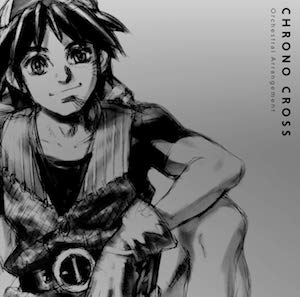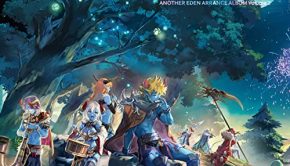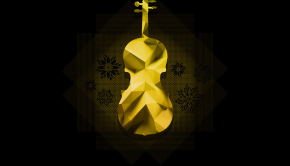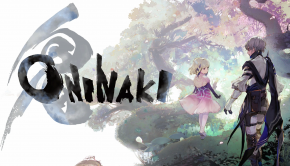Chrono Cross Orchestral Arrangement
 |
Album Title: Chrono Cross Orchestral Arrangement |
| Record Label: Square Enix Music |
|
| Catalog No.: SQEX-10725 |
|
| Release Date: September 4, 2019 |
|
| Purchase: Buy at CDJapan |
Overview
Chrono Cross Orchestral Arrangement is the first official orchestral album for the game, though there have been other official arrangement albums in the past. It releases simultaneously with an equivalent album for Chrono Trigger, and is available additionally as part of a box set, following the release pattern set by the NieR orchestral albums from the previous year. The arrangements are shorter-form arrangements focusing on just one or two tracks, and even the coupled tracks keep the two halves very separate. The arrangements are thus kept very close to Yasunori Mitsuda’s originals, preserving what made the originals special but bringing little new to the table.
Body
The album begins appropriately with “Chrono Cross -Scars of Time-“. Given that the original already used live instruments, this one feels largely inessential, even though in itself it is still a formidable track. There are some notable changes; the grungy guitar opening is now harp with some nice piano trickles, and the later lead violin melody is at first replaced with a simplification for brass. Where the original focused on elegance and a folk feel, here there is more power. Other upbeat tracks include “Whirlwind / The Brink of Death” which is suitably bombastic and sounds great with the orchestra. Most of the change here is in the percussion, which does a good job of seamlessly switching time signatures within and across the two tracks. Both halves are busier than their originals, which I think works well for the feeling of chaos and freneticism, though I thought the ending was a bit haphazard in a bad way. The there is “The Frozen Flame / Dragon God.” The first half follows the atmospheric original; without the choir is seems less dreamy but more sorrowful, which isn’t a bad thing. It picks up a bit into a sweeping waltz which works well for the track, and I find the harmonic transitions here works much better than in the original. After dying out, the track explodes into “Dragon God” which on the whole sounds better than its original too, mostly thanks to improved and more varied instrumentation. There are also some interesting choices, such as the brass that covers the original’s fractured vocal line, which generally make the track feel more powerful, but it might not go over well with everyone.
A track that captures the lighter, folk side of the game is the first half of “Arni (Home World) / Shore of Dreams (Another World).” The “Arni” half is very similar in feel to the original, though the sound is expanded and the instruments are switched up on occasion. It’s still pleasant enough, but the switching of instruments just feels like the arrangement is going through a checklist to buy time, since there isn’t a real musical development at work. The “Shore of Dreams” half doesn’t fare much better, since it essentially just reproduces the original, and then repeats with the fuller strings on the melody rather than just the solo violin. Both tracks improve on their originals in sound, but there simply isn’t any new idea in either half, which is very disappointing. “The Girl Who Stole the Stars / Dreams of the Ages” is a bit similar. The first half of the track is very close to the original, which already was a very good track with an emotive violin solo. “Dreams of the Ages” benefits more from being played by a real orchestra, as the original lacked the punch that one feels here. The folk feel is now mostly lost here since the opening melody is now led by the harp, but that helps the track feel more in tonally in line with the bulk of the album. Since the song has a proper conclusion here, the climax is also more impactful.
The remainder of the album is more downbeat and emotional. “Bound by Fate” is one that sounds much better than its original thanks to the live strings which give the song a palpable thickness. The song also crescendoes nicely, though predictably, and becomes redundant as it goes. “The Darkness of Time / Life -A Distant Promise- / Reminisce -Enduring Thoughts-“ begins atmospherically, but while it is probably more effective in a live setting, it’s a bit too empty to be effective as a recording. “Life -A Distant Promise” brings some substance to the track, and again is a marked improvement over the original in sound but still very close to it in structure. The transition to “Reminisce -Enduring Thoughts-“ is too sharp, but the arrangement itself is fine, bringing in the orchestra to support the piano which leads with the melody, blossoming up to a new climax. But as pretty as the track is, the simplicity of the new parts is frustrating; the strings for example merely double up on the piano melody at first, rather bringing introducing a new countermelody to the track. Where simplicity worked well for the original piano solo, to encounter that same simplicity in an arrangement album is rather disappointing.
The album ends with “Radical Dreamers -Le Trésor interdit-“. The captivating simplicity of the original guitar and voice is unfortunately replaced with a rather bland arrangement that doesn’t succeed at creating a dynamic narrative. There is at least an attempt made to develop the track here, as the tone of the track becomes more pressing partway through before resolving. For this, the melody is passed along the different groups of instruments, and the orchestra builds up the tempo and dynamics, but it’s all done with very basic figures and uninspired countermelodies. The end result is a bland track that doesn’t remotely come close to the emotive power of the original.
Summary
Ultimately, Chrono Cross Orchestral Arrangement is a bit of a let down after all this time. Since the originals were already so well rendered, to have arrangements that stick so close to those originals means that the album just feels like a minor improvement on the original, with nothing new to listen for or experience. For some, this will be just fine, but for others the album rarely reaches the standards of expansive arrangements set by other orchestral game projects. This is compounded by the fact that the album is also very short, clocking in at just thirty-five minutes. This makes the asking price of the physical edition quite steep, though the digital edition is less expensive. In itself, the album is still a fine tread through some of Yasunori Mitsuda’s wonderful score for the game, but after twenty years I was hoping for much more from an orchestral arrangement.
Do you agree with the review and score? Let us know in the comments below!
2.5
Posted on January 16, 2020 by Tien Hoang. Last modified on January 22, 2020.














